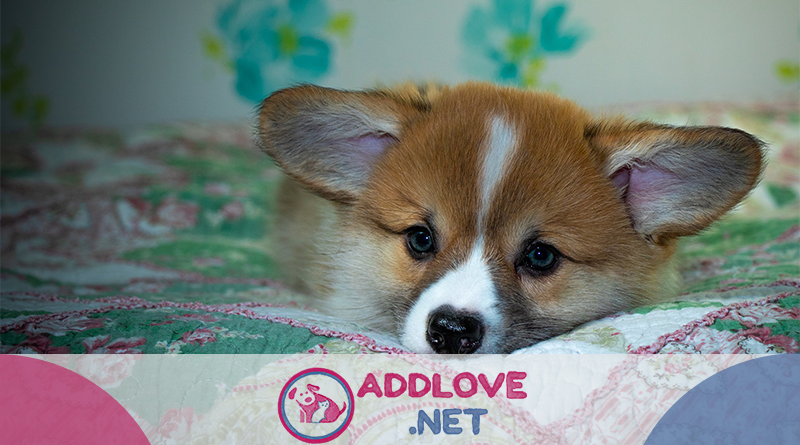Corgis are incredibly cute little dogs with a very friendly character. This material will describe what kind of care is needed for a corgi, what are the nuances of their maintenance, what diseases this breed is prone to, and other equally important and interesting details that everyone needs to familiarize themselves with before starting a pet.
All about the corgi: a short description of the breed, character and features
The dog is suitable for keeping in an apartment, but requires certain physical activity. Recommended for beginner dog breeders.
Experts divide Welsh Corgi into two types: Pembroke and Cardigan. Those who do not know a lot about dogs will find it difficult to understand their difference, however, these two species still have certain differences.
Pembrokes are more domestic and gentle dogs, and cardigans are more hardy and massive. A little bit different care is needed for the volume. Pembrokes are much more delicate, while cardigans can be loaded more with physical activity.
These seemingly small dogs have indefatigable energy and great potential. They are easy to train and respond well to children. Since this is a dog that has been grazing livestock from time immemorial, it just needs enough movement. You should not start a corgi if you are used to leading a sedentary and passive lifestyle. This dog is perfect for active families, or traditionally for farmers. They are also guard dogs by nature. If this dog will live in an apartment, he needs to arrange at least two active walks a day. In addition to physical activity, corgi require constant active mental development. Various logical and interactive games should simply be in the arsenal of the owner of this breed.
Corgi care and maintenance
One of the main points is caring for the corgi. This breed does not require any special care, like most dogs with long hair, they need to be brushed periodically. Twice a year in the spring and summer in the corgi there is a period of strong molt, then combing out very often is necessary. In addition to brushing, the dog should brush its teeth once a week.
It is imperative to constantly keep the ears clean, they are erect in the corgi, so dirt and dust easily get into them. One should not forget about the claws. During walks, they tend to grind, but if the claws are very grown, they must be cut off. You rarely need to bathe these dogs, they have a fine coat that repels dirt. Frequent bathing can even hurt, because then the unique fat layer is washed off.
It is worth knowing about some of the smaller nuances before bringing such a pet into the house. First, it is better to remove carpets, various wires, and hide securities and things. After a month, the dog will adapt and there will be no need to expect unpleasant surprises from it.
Buy a variety of toys for your puppy to chew on and just play with. It is important to take care of proper nutrition. The main thing is not to overfeed the dog, because corgi tend to be overweight. Up to three months, the puppy needs to be fed about five times a day, when he is six months old, the number of meals should be reduced to two. As for food, it can be both special food and homemade food like dairy products, meat, eggs, vegetables.
Even very small dogs should be taken for a walk about five times a day, at an older age the number of walks can be reduced to three, and adult dogs get by with two or even one, but an active walk.
Also, an important point, the puppy should be taken for a walk only after all vaccinations and after the quarantine period has expired.
The Corgi breed needs exactly the same care as most other dogs.

Features of training welsh corgi
Proper training and education is incredibly important. Psychologically, Corgis are very similar to German Shepherds, so if you are familiar with Shepherds you can use the same parenting methods.
Corgis are easy to train, but the best results from these dogs can only be achieved with the use of affection and patience. Forget about severity and aggression, and if something doesn’t work out better, just get up and leave, in this case the corgi will understand your displeasure, but they tolerate aggression very badly. Every, even the smallest achievement of a dog should be rewarded with generous praise or a small prize. Corgis should enjoy the process, the dog should be fun, then things will go faster and more efficiently.
Even a small puppy needs to be accustomed to his cage, even if he will live in an apartment. The dog must know its place, so you should not pay attention to the plaintive barking, very soon it will pass. Train your dog to his name, talk to him, often pronounce his nickname. Everything should sound in a playful voice, like a call to play. Then the result will be more effective.
The simplest command “Come to me” should begin with the name of the dog and be followed by slaps on the hip. The command “Place” should sound more severe. Do not teach your dog several commands at the same time, let him first learn one well, and then move on to another. Corgis are happy to carry out the “Bring” command. You need to drop the stick, let go of the leash and shout “Aport” or “Bring”. If the dog does not want to perform, show him some delicacy and he will gradually begin to obey. A similar sequence of actions and with other standard commands such as “Sit”, “Place”. The main thing at the beginning of any command is to refer to the dog by name.
It is worth teaching the dog to distinguish between friends and foes. These are watchdogs, therefore, in the absence of this skill, they can bark a lot and obsessively, bother you and your neighbors.
When the corgi turns five months old, you can start more serious training, because these dogs are very talented and often take part in various exhibitions.
In general, one should act according to the system: from simple to more complex. Start with the most basic commands, and end with tracking or agility.
Corgi health recommendations
The corgi breed picks up diseases of an infectious nature in the same way as any other pets. But there is also a separate type of sores that corgi most often suffer from by nature.
Among these diseases are the following:
- Eye diseases (dysplasia, glaucoma, cataracts). This is a common problem with all herding dogs. Surgical treatment is often required.
- Allergies, obesity. Enterocolitis – provoked by improper feeding or a tendency to allergies.
- Skin diseases (eczema). With a similar problem, you need to shave off the hair at the site of the lesion and treat the skin with antibiotics. Also, you can use a special protective collar that is worn around the neck;
- Corgi usually have a very difficult birth. The help of a specialist would be very helpful.
- Spinal cord disease. Typical for older dogs of this breed.
- Dysplasia of the hip joints. A very insidious disease that requires immediate treatment. Otherwise, the dog may stop walking.
- Spine diseases. Typical for short breeds with a long back.
- Epilepsy. May be triggered by severe stress. With an attack, you need to raise the dog’s head, and anticonvulsants also help.
- Blood clotting disorder or von Willeband disease. The sore requires taking medications to prevent blood clots.
- Diseases of the bladder and kidneys. These dogs may develop urinary stones due to heredity.
To protect your pet’s health, you should regularly visit a doctor, do the necessary vaccinations and, in case of suspicious symptoms, immediately seek qualified advice.
Corgi, like any dog, requires attention and care. If you decide to have a pet, be sure to consult with a veterinarian before that, study all the features of the breed so that the dog grows healthy, enjoys life and makes you happy.


